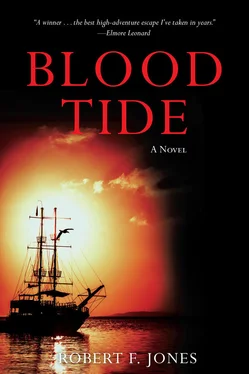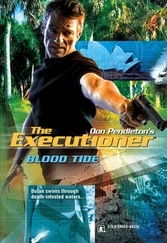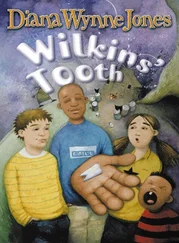Robert Jones - Blood Tide
Здесь есть возможность читать онлайн «Robert Jones - Blood Tide» весь текст электронной книги совершенно бесплатно (целиком полную версию без сокращений). В некоторых случаях можно слушать аудио, скачать через торрент в формате fb2 и присутствует краткое содержание. Год выпуска: 2014, Жанр: Старинная литература, на английском языке. Описание произведения, (предисловие) а так же отзывы посетителей доступны на портале библиотеки ЛибКат.
- Название:Blood Tide
- Автор:
- Жанр:
- Год:2014
- ISBN:нет данных
- Рейтинг книги:5 / 5. Голосов: 1
-
Избранное:Добавить в избранное
- Отзывы:
-
Ваша оценка:
- 100
- 1
- 2
- 3
- 4
- 5
Blood Tide: краткое содержание, описание и аннотация
Предлагаем к чтению аннотацию, описание, краткое содержание или предисловие (зависит от того, что написал сам автор книги «Blood Tide»). Если вы не нашли необходимую информацию о книге — напишите в комментариях, мы постараемся отыскать её.
Blood Tide — читать онлайн бесплатно полную книгу (весь текст) целиком
Ниже представлен текст книги, разбитый по страницам. Система сохранения места последней прочитанной страницы, позволяет с удобством читать онлайн бесплатно книгу «Blood Tide», без необходимости каждый раз заново искать на чём Вы остановились. Поставьте закладку, и сможете в любой момент перейти на страницу, на которой закончили чтение.
Интервал:
Закладка:
They lunched in the warm lee of the dunes, sharing an abalone salad, the main ingredient of which Miranda had personally dived for from the offshore rocks, along with her own home-baked rye bread. Then Culdee took her to a big, cold blue pool where the creek met the brackish water. He pointed out the shimmering shadows cast on the rocky bottom by the newly arrived steelhead. He worked some line off the flyrod and with one quick, low backward cast laid it out, quartering upstream of the rearmost shadow. The fly—a Humboldt railbird he called it—lighted on the water without a splash and disappeared into the current. A moment later the shadow flickered and was gone. Culdee raised the rod, and it bent almost in half. A long, silver shape exploded into the sky, loud as the morning’s mallards. The reel screamed. He handed Miranda the rod, smiling again, his eyes bright and happy. The fish was strong, as strong as the wahoo she’d often caught in the islands, as strong and acrobatic pound for pound as the blue marlin she’d hooked and lost off Kona. The steelhead broke off on its tenth or twelfth jump. She turned crestfallen to her father, but Culdee told her not to worry, there were plenty left where that one came from. Then he taught her to cast.
Later, as they hiked up the trail toward home, he stopped and looked back down at the marsh and the creek. His eyes were dark now, and the smile was gone.
“That was my heaven,” he said. His profile to the sunset, Culdee’s face was half red, half black.
While the good weather lasted, she hunted and fished on her own. She grew proficient at it, deadly enough when she wanted to be, but it could never be her heaven. She’d found that already, and lost it: the freedom of the seas. Now she was on the beach. They were both on the beach. That was the hell of it. She let her hair grow long. She’d only kept it short so it wouldn’t foul in the rigging.
With the winter rains Miranda looked indoors for work. The old family schooner, Caprice , rested on blocks in the boathouse, high and dry and shrouded in canvas since her grandfather’s death fifteen years ago. She was forty-eight feet, two masted, and although her rigging was rotten, the oak-ribbed hull was still sound—even if great gaps showed daylight through strakes where the caulking had dried out. Her masts of Douglas fir seemed strong enough. Crawling around the forepeak and lazaret with a flashlight, Miranda found a shipwright’s treasure trove—blocks and shivs; snap rings and eye-bolts and spare pelican hooks; gallons of litharge and red lead; Stockholm pine tar for the rigging; coils of Manila, cotton, and hemp rope in diameters varying from three-inch hawsers to small stuff; shackles, thimbles, cringles, sail twine, and needles; bolts of heavy canvas stowed airtight and safe from rats and rot; reels of wire cable and shots of anchor chain (rusted by time but needing only the touch of a wire brush and some fresh paint to be young again); even two spare anchors, Danforths, just in case.
Miranda turned to. All winter long the boathouse rang to the chime of her caulking iron while rain drummed on the roof. At night, in the house, she sewed new sails by hand until her palms were sore, then soothed them by smearing warm tar into fresh rigging. She carved trunnels of locust wood to replace the few that had split, worked hot oil into frozen blocks until they hummed, cut chafing gear from an old cowhide. She wire-brushed and painted, rasped and splashed, until she was permanently spotted, like some gaudy reef fish—red and yellow and black. There were rats in the schooner’s hold. She stalked the dumb ones and killed them with a marline-spike. The smart ones she smoked out with a slow fire of rags soaked in fuel oil and Raid, then shot them with the 12-gauge when they abandoned ship. Finally there was only one left, a grizzled old graybeard wise to her every trick. One day she cornered him up in the forepeak. He reared back in the beam of her flashlight, glaring at her down the long, scarred reach of his snout, whiskers bent and twitching like frayed wire. He smelled horrible. One ear had been chewed to a stub in his lifetime of mating and fighting. He’s ready to die, she thought, but he’s not afraid. Ah, well, what’s a ship without a rat? And she crawled away without touching him.
Topside at the house Culdee sat in his chair, staring out to sea. Now and then he’d catch a whiff of hot tar or red lead, and his nostrils twitched. Vagrant breezes brought him the rasp of Miranda’s saw or the bang of a hammer. He got out of the chair and rummaged around the house until he found a coil of clothesline. He tried to cut off a length of it with his old rigging knife, but the blade was too dull. He sawed it through with a bread knife instead. About six feet ought to do it. He whipped the ends neatly with waxed wrapping twine so they wouldn’t unlay and went back out onto the deck.
When Miranda came up for lunch, she found him at the edge of the deck, by the railing. He was throwing knots. Simple ones at first—Kelligs and beckets, buntlines and bowlines, timber hitches and Magner’s hitches. He took them slow and easy, and when he tied them right, he almost smiled. Then he moved on to more difficult ones—the sailor’s cross and waterman’s knot, the lover’s knots (true and false), lanyard knots, sheepshanks, a double crown with single loops.
On the difficult knots his hands sometimes cramped, and she would find him cursing, tears in his eyes, banging the hand on the deck. It resembled the monkey fist he was trying to tie. Before she could stop herself, she was telling him that if he ate better and didn’t drink so much, he wouldn’t cramp up like that. He just stared at her, not trusting himself to talk.
“Aw, this is just kid’s stuff,” he said finally. “I don’t know why I mess with it. I used to tie these things in the dark. I used to could tie them in my sleep.”
But the next day he came down to the boathouse and searched through the old line until he found a coil of worn, two-and-a-half-inch hemp. He carried it back to the house, and she heard him chopping at it with an ax. On her visits to the house she saw him unlaying the rope lengths into their individual strands, then into their separate yarns. He checked them through for strength and began retwisting them. A week later he presented her with half a dozen neatly tied fenders, each grommeted perfectly at either end. “Keep you from taking splinters out of the dock when you come alongside,” he said.
Now instead of just staring out to sea, he would stare out to sea and throw knots, blindly, all the time.
By winter’s end, as the rains grew intermittent and the weather warmed, Miranda opened the boathouse doors. Through most of the afternoons the sunlight reached the schooner’s stern sheets, and she began replacing sections of taffrail that had weakened or rotted out over the years. She found some old teak among the sea stores, lathed round and the right diameter, but it was straight. She rigged a steam box and softened the wood until she could warp it to the proper contours. It was pleasant feeling the sun again. One afternoon she felt she was being watched. She had stripped off her paint-stained canvas shirt and was working topless. When she looked behind her, she saw the rat’s eyes gleaming in the companionway hatch.
Every day he watched her. She began leaving crusts of bread and hunks of cheese rind for him. Gradually she began working closer to him. Finally she was able to feed him from her hand. But when she tried to touch him one day, he crouched back, hissing, and flashed his long, yellow teeth at her.
He scuttled away and didn’t return for three days.
She called him Rance the Rat. Rance, short for Rancid.
NINE

Интервал:
Закладка:
Похожие книги на «Blood Tide»
Представляем Вашему вниманию похожие книги на «Blood Tide» списком для выбора. Мы отобрали схожую по названию и смыслу литературу в надежде предоставить читателям больше вариантов отыскать новые, интересные, ещё непрочитанные произведения.
Обсуждение, отзывы о книге «Blood Tide» и просто собственные мнения читателей. Оставьте ваши комментарии, напишите, что Вы думаете о произведении, его смысле или главных героях. Укажите что конкретно понравилось, а что нет, и почему Вы так считаете.












